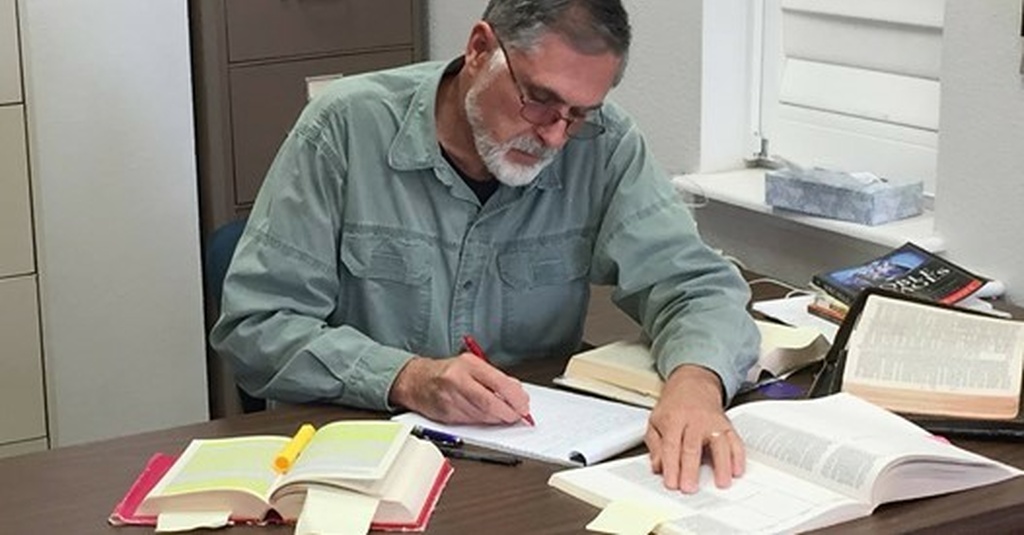
Words of Faith in Time and History
Many of our problems in understanding things in Scripture stem from not knowing what the Word of God has already said on the matter. When we abstract a verse we are trying to understand, it is as if it was a stand-alone statement, ignoring the whole counsel of God’s Word.

- Mark R. Rushdoony
Many of our problems in understanding things in Scripture stem from not knowing what the Word of God has already said on the matter. When we abstract a verse we are trying to understand, it is as if it was a stand-alone statement, ignoring the whole counsel of God’s Word.
This struck me during Easter services when a familiar crucifixion passage was quoted where Jesus said, “My God, my God, why hast thou forsaken me?” Abstracted from the rest of Scripture, this becomes a puzzling statement because it suggests that God turned His back on Jesus even though we are clearly told everything He did was the will of the Father. Why would the Father turn away from the Son in any way if His-sin bearing was the Divine will?
When Jesus said, “My God, my God, why hast thou forsaken me?” He was quoting the exact words of Psalm 22. So to understand our Lord’s reference, we must look at what David said.
David’s statement only served to introduce what he knew as he wrote Psalm 22. David immediately dismissed cause for questioning God’s way. In times of trial, God delivers (v. 4), when reviled, God gave him hope (v. 0), and when saved from seemingly impossible circumstances, David would proclaim his God (v. 22). David then called on others to do so. He even went beyond his own situation and envisioned “the ends of the world’ turning to God (v. 26-31).
David spoke those words of faith centuries earlier; then David’s Son and Lord spoke them with the same faith in A.D. 30, because He saw the eschatological implication of His atonement.
David’s point in Psalm 22 was that, no matter his circumstances, God had not, in fact, forsaken him. This should be our faith as well.
Please read Psalm 22 and note its confidence in both God’s presence and unfolding victory in time and history.

- Mark R. Rushdoony
Mark R. Rushdoony graduated from Los Angeles Baptist College (now The Master’s College) with a B.A. in history in 1975 and was ordained to the ministry in 1995.
He taught junior and senior high classes in history, Bible, civics and economics at a Christian school in Virginia for three years before joining the staff of Chalcedon in 1978. He was the Director of Chalcedon Christian School for 14 years while teaching full time. He also helped tutor all of his children through high school.
In 1998, he became the President of Chalcedon and Ross House Books, and, more recently another publishing arm, Storehouse Press. Chalcedon and its subsidiaries publish many titles plus CDs, mp3s, and an extensive online archive at www.chalcedon.edu. His biography of his father will be published later this year (2024).
He has written scores of articles for Chalcedon’s publications, both the Chalcedon Report and Faith for all of Life. He was a contributing author to The Great Christian Revolution (1991). He has spoken at numerous conferences and churches in the U.S. and abroad.
Mark Rushdoony has lived in Vallecito, California, since 1978. His wife, Darlene, and he have been married since 1976. He has four married children and nine grandchildren.